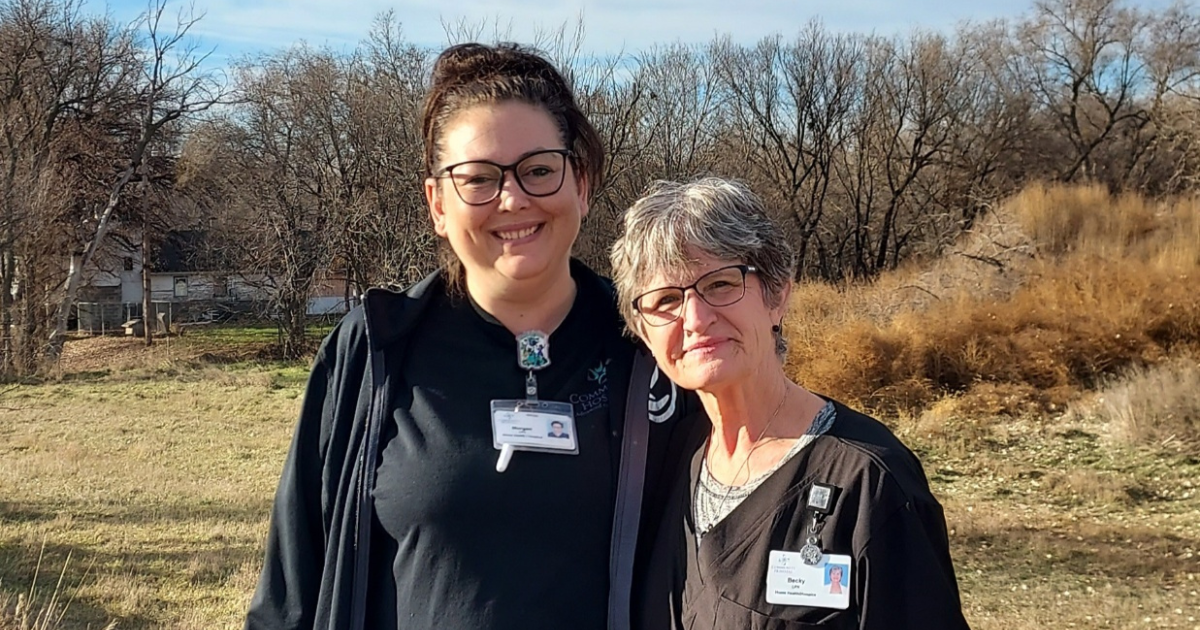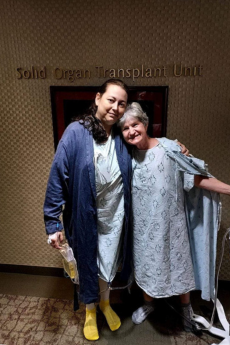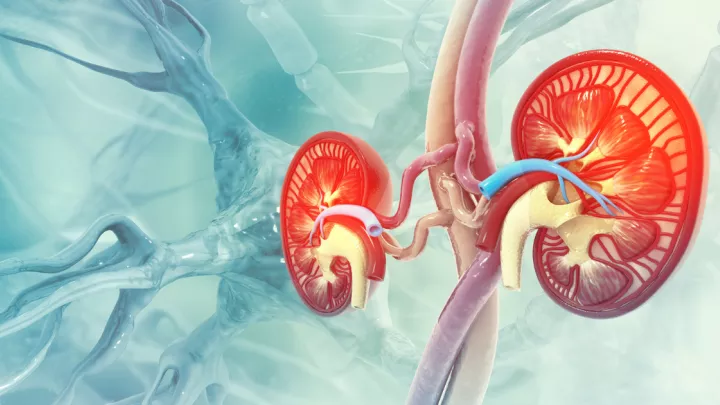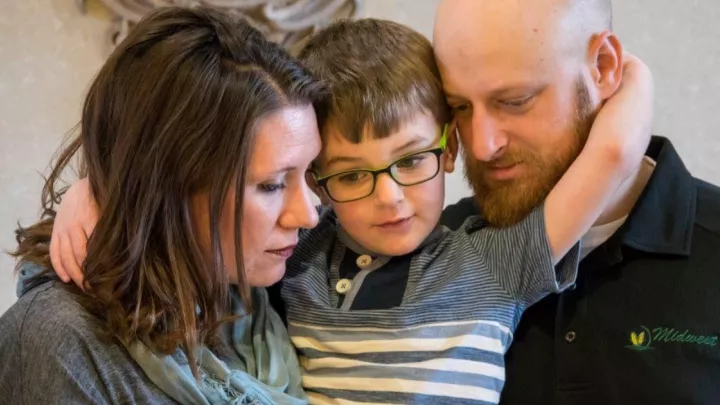Living donor gives new life to young mother

Becky Felker had never considered becoming a living donor until that life-changing day several years ago.
One of her co-workers, Morgan Coady, had genetic kidney disease. Coady’s health had been declining for several years. Then one day, Coady walked into the office and jokingly said, “Anyone want to give me their kidney?”
“It felt like God tapped me on the shoulder and said, ‘You could do it,’” Felker recalls. “The thought scared me as well as intrigued me. I have never considered donating a kidney and wasn’t even sure I wanted to.”
For the past five years, Coady and Felker worked together as nurses at Community Health Care and Hospice in McCook, Nebraska. Coady was the same age as Felker’s oldest son. “What if this was her son needing a kidney,” Felker thought.
Felker couldn’t shake that little voice in her head. So she pondered it for the next few weeks. She prayed about it and talked to her pastor. And still, she couldn’t come up with a good reason why she couldn’t donate her kidney.
Then her annual lab results came in. At 61, she was in perfect health. There was nothing left to hold her back. She discussed the idea with her husband and three sons. Everyone was on board.
“That’s when I approached Morgan and told her I wanted to donate my kidney,” Felker recalls.
“I couldn’t believe it,” says Coady, whose kidney was now functioning at just 15%. “It was such a selfless act. She gave me my life back and my family’s. There are no words to express how thankful I am.”
Coady, who was just 37 at the time, was married with two young girls. She had struggled with gout and other issues in her 20s. At age 30, tests revealed that her kidney was functioning at just 30%. Coady has a family history of kidney disease.
Doctors determined that Coady had a genetic kidney disease that could not be reversed. By age 35, she had started daily kidney dialysis treatments. She was also put on the organ transplant list and waited for the call.
“I tired very quickly and had to take a two- to three-hour nap every day when I got home from work,” says Coady. “Then I would make dinner, eat and go to bed. It was difficult, but it was the only option I had.”
Two years passed with no news of an organ donor – until Felker offered to donate her kidney as a living donor. A living donor is a healthy individual who agrees to donate a kidney or a portion of their liver to someone waiting for a transplant. Living donors have become an important avenue for securing organs amid a growing organ donor shortage.
Unfortunately, tests determined that Felker was not a match. But this did not deter her. Felker agreed to a paired exchange. This occurs when a person wishes to donate to a relative or friend but cannot because they are incompatible. If another pair is found in the same circumstance, an exchange may be possible between the two pairs.
In October 2022, a match was found. Coady and Felker came to Nebraska Medical Center in Omaha, Nebraska, to receive and give a kidney. Unfortunately, the surgery had to be postponed.
In June 2023, Coady got the call again – a new organ donor had been found. Once again, Coady and Felker came to Nebraska Medical Center to prepare for their surgeries. Three days later, one of Felker’s kidneys was removed for another patient on the waiting list. When she woke up from surgery, Felker says she was “overjoyed.”

The process went very smoothly. Felker was released from the hospital after three days, was back home in McCook in two weeks, and back to work in six weeks. “I feel no different today than I did before the surgery,” she says. “If it wasn’t for my surgery scar, you would never know I had given away one of my kidneys.”
Coady had an equally successful recovery. “I haven’t felt this good for 10 years,” Coady says. “It’s such a slow, progressive disease that you don’t realize how bad you once felt until you are better.”
Felker says she was completely confident about the surgery and the competence of the doctors and nurses at Nebraska Medical Center. “They were so thorough during the work-up process and got Morgan and me through surgery safely.”
Another important part of the process was the help provided by the National Living Donor Assistance Fund, which offers grants to living donors to help offset expenses. This includes things like costs for transportation, hotels and lost wages. “Their assistance was greatly appreciated,” says Felker.
Felker says she believes she is just at the beginning of her journey. “I’m not sure what my role is now, but I believe there is more out there for me to do to help others waiting for an organ donor. People have to hear their stories. Once you hear their individual stories, it may change your feelings about becoming a living organ donor.”
Learn more about living donors
To learn more about living donation and whether you qualify, go to NebraskaMed.com/LivingDonor.






